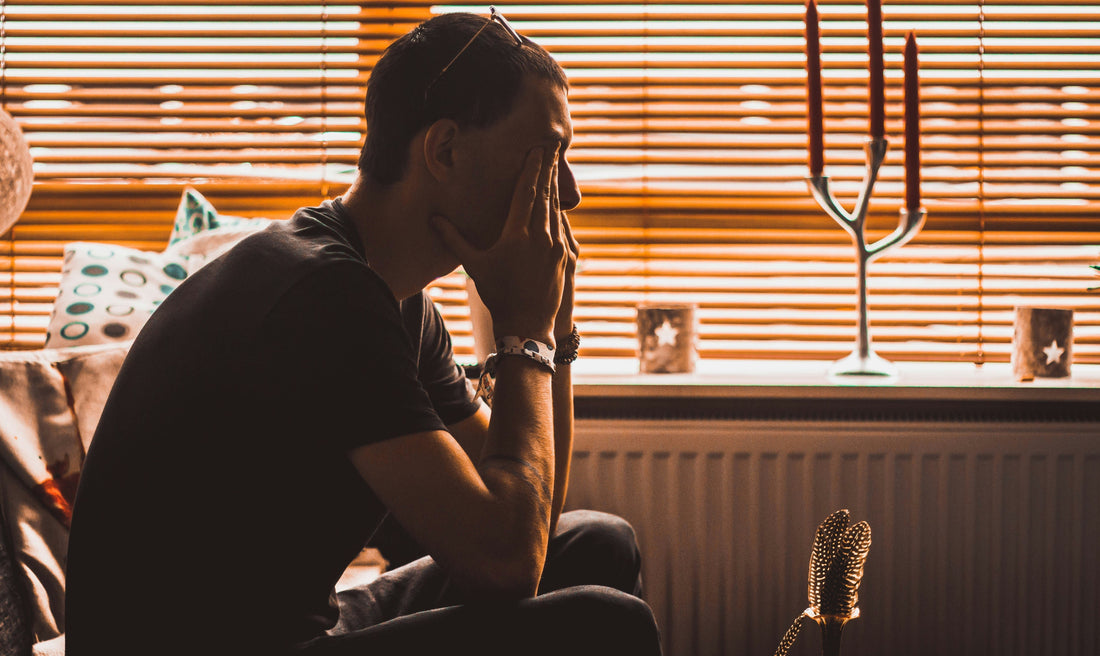Understanding Low Libido
A decline in libido can be frustrating and concerning, affecting both confidence and relationships. While many assume it’s a natural consequence of ageing, various lifestyle and health factors contribute to low sex drive. Addressing these root causes through diet, exercise, stress management, and natural supplementation can be highly effective.
Common Causes of Low Libido
-
Testosterone Decline
Testosterone is a key hormone in regulating libido. In men, levels naturally decline by about 1% per year after the age of 30, but poor sleep, chronic stress, and inactivity can accelerate this process. Studies show that lower testosterone is directly linked to decreased sexual desire and energy levels [1]. -
Chronic Stress and High Cortisol
Stress leads to increased cortisol production, which can suppress testosterone and negatively impact sexual desire. Research suggests that prolonged stress reduces libido and erectile function by disrupting hormonal balance [2]. -
Poor Sleep
Sleep deprivation can cause significant drops in testosterone levels, which may explain why many men experience reduced libido after nights of poor rest. A study found that just one week of restricted sleep led to a 10-15% drop in testosterone [3]. -
Nutrient Deficiencies
Certain vitamins and minerals, such as zinc, magnesium, and vitamin D, play a crucial role in hormone production and sexual function. Deficiencies in these nutrients have been linked to lower testosterone levels and reduced libido [4]. -
Sedentary Lifestyle
Regular exercise boosts circulation, enhances mood, and supports healthy testosterone levels. In contrast, a lack of physical activity is associated with higher body fat percentages, which can lead to increased oestrogen and decreased libido [5]. -
Excess Alcohol and Drug Use
Alcohol suppresses testosterone production and negatively impacts sexual performance. Chronic alcohol consumption is strongly linked to lower libido and erectile dysfunction [6]. -
Poor Circulation and Heart Health
Sexual function relies on good blood flow, and cardiovascular issues such as high blood pressure and arterial stiffness can reduce libido. Conditions like obesity and diabetes are also linked to poor circulation and sexual dysfunction [7].
Natural Ways to Boost Libido
Prioritise Sleep
- Aim for 7-9 hours of quality sleep each night.
- Reduce screen exposure before bed to improve melatonin production.
- Consider magnesium supplementation to aid relaxation.
Manage Stress and Cortisol Levels
- Engage in mindfulness practices such as meditation or deep breathing.
- Reduce excessive caffeine intake, which can heighten cortisol levels.
- Exercise regularly to help balance stress hormones.
Optimise Nutrition
- Increase intake of zinc (found in shellfish, meat, and seeds), which is crucial for testosterone production.
- Ensure adequate vitamin D levels, as deficiencies have been linked to reduced testosterone and libido [8].
- Stay hydrated to support circulation and energy levels.
Exercise Regularly
- Resistance training (weightlifting) has been shown to boost testosterone levels.
- Cardiovascular exercise improves blood flow, supporting both energy and sexual function.
Consider Natural Supplements
Several natural herbs have been traditionally used to support testosterone levels and libido.
Tongkat Ali (Eurycoma longifolia)
- Known as “Malaysian Ginseng,” Tongkat Ali has been shown to support testosterone production, reduce stress, and enhance overall sexual well-being.
- A clinical study found that men supplementing with Tongkat Ali experienced a significant increase in testosterone levels and improved libido [9].
Fadogia Agrestis
- This West African herb has gained attention for its potential role in enhancing testosterone production and supporting sexual function.
- Research suggests that Fadogia Agrestis may promote luteinising hormone release, which signals the body to produce more testosterone [10].

Conclusion
Low libido is not an inevitable part of ageing—it is often linked to lifestyle habits, hormone imbalances, and overall health. By improving sleep, managing stress, exercising, and considering natural supplements like Tongkat Ali and Fadogia Agrestis, men can take proactive steps toward restoring their vitality.
References
- Kaufman & Vermeulen, 2005. "Age-related changes in testosterone and sex hormone-binding globulin in men." The Aging Male.
- Sapolsky et al., 2012. "Cortisol, Stress, and Energy Metabolism." Nature Reviews Endocrinology.
- Leproult & Van Cauter, 2011. "Effect of Sleep Loss on Testosterone Levels in Young Men." JAMA.
- Prasad, 2013. "Discovery of Human Zinc Deficiency and Its Impact on Male Reproductive Health." Nutrition.
- Kouri et al., 2005. "Fat-free mass index in users and nonusers of anabolic-androgenic steroids." Clinical Journal of Sport Medicine.
- Anderson & Hines, 2013. "Alcohol and Male Sexual Dysfunction: A Review." Journal of Sexual Medicine.
- Esposito et al., 2012. "Obesity, Arterial Hypertension, and Sexual Dysfunction." International Journal of Endocrinology.
- Wehr et al., 2010. "Association between vitamin D status and testosterone levels in men." Clinical Endocrinology.
- Talbott et al., 2013. "Effects of Tongkat Ali on Stress Hormones and Mood State in Moderately Stressed Subjects." Journal of the International Society of Sports Nutrition.
- Yakubu & Afolayan, 2009. "Effect of Fadogia Agrestis on Sexual Behaviour and Testosterone Levels." Asian Journal of Andrology.

